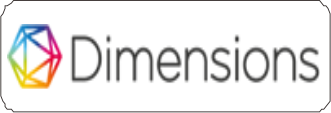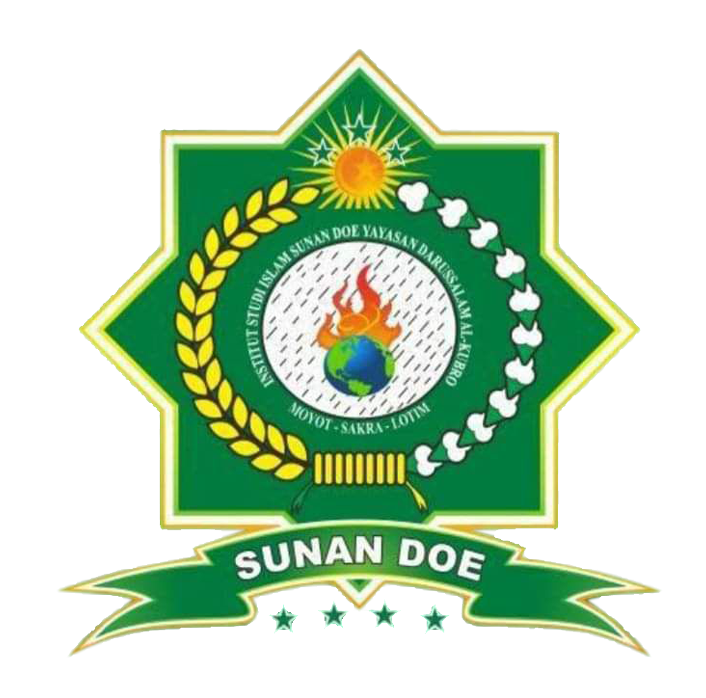The Integration of Positivist Philosophy in the Teaching Strategies of the Four Arabic Language Skills
Keywords:
positivism, learning, arabic language, teaching strategiesAbstract
Grounded in positivist philosophy, which emphasizes objectivity, empiricism, and measurability, this study explores the application of positivist principles in Arabic language learning. The primary objective is to examine how these principles are reflected in the teaching of the four core language skills: listening, speaking, reading, and writing. Employing a qualitative research design with a literature review method, data were drawn from scholarly books, peer-reviewed journals, and relevant academic articles. The data analysis followed systematic stages of reduction, organization, and interpretation to construct a comprehensive understanding of the positivist paradigm in language instruction. The findings reveal that positivist philosophy underscores structured and measurable processes in Arabic language learning. For receptive skills such as listening and reading, positivist principles manifest through exercises that enable the quantitative assessment of comprehension. In contrast, productive skills speaking and writing highlight product-oriented approaches that allow for objective evaluation. Overall, this study demonstrates that the adoption of positivist philosophy contributes significantly to enhancing the effectiveness, accountability, and systematic development of Arabic language learning.
References
Ahmad, M., & Tambak, S. (2018). Penerapan Metode Diskusi Dalam Meningkatkan Hasil Belajar Murid Pada Pelajaran Fiqh. Al-Hikmah: Jurnal Agama Dan Ilmu Pengetahuan, 15(1), 64–84. https://doi.org/10.25299/jaip.2018.vol15(1).1585
Arifin, & Nurdyansyah. (2018). Buku Ajar Metodologi Penelitian Pendidikan. Umsida Press.
Atika, N. A., & Muassomah, M. (2020). Penggunaan Media Kahoot! Sebagai Media Pembelajaran Maharah Kitabah (imla’) Bahasa Arab di Era Industri 4.0. Lisanan Arabiya: Jurnal Pendidikan Bahasa Arab, 4(2), 277–297. https://doi.org/10.32699/liar.v4i2.1256
Audina, N. A., & Muassomah, M. (2020). Instagram: Alternatif Media dalam Pengembangan Maharah Al-Kitabah. Al-Ta’rib : Jurnal Ilmiah Program Studi Pendidikan Bahasa Arab IAIN Palangka Raya, 8(1), 77–90. https://doi.org/10.23971/altarib.v8i1.1986
Aziz, H. M. A. (2019). Metode diskusi Qiro’ah pembelajaran bahasa Arab Terhadap minat belajar. Jurnal Penelitian Tarbawi, 4(1), 18–37.
Fajrin Haikal, M., Alawiyah, R., & Parhan, M. (2024). Tantangan dan Peluang Positivisme dan Kritisisme dalam Pendidikan Islam. Jurnal Pendidikan Dan Pembelajaran Indonesia (JPPI), 1:1, 1–12. https://doi.org/10.11111/praxis.xxxxxxx
Fasekhah, N. (2023). Penguasaan Kosakata Arab Melalui Model Discovery Learning Bagi Siswa Madrasah Tsanawiyah. Research Journal on Teacher Professional Development, 1(1), 97–106.
Febian, A., & Lubis, L. (2023). Peningkatan Maharoh Kitabah melalui Metode Insya’ dalam Pembelajaran Bahasa Arab Pada Siswa Kelas VII Di SMPIT Ad-Durroh Medan. Journal of Education Research, 4(3), 964–971. https://doi.org/10.37985/jer.v4i3.334
Fidri, M., & Safri, A. (2024). Pengaruh Penerapan Metode Discovery Learning Terhadap Hasil Belajar Imla’. Ta’Limuna : Jurnal Pendidikan, 2(1), 82–92.
Hasanah, U. (2019). Kontribusi Pemikiran Auguste Comte (Positivisme) Terhadap Dasar Pengembangan Ilmu Dakwah. Al-I’lam: Jurnal Komunikasi Dan Penyiaran Islam, 2(2), 70. https://doi.org/10.31764/jail.v2i1.1261
Huda, S. (2023). Dasar-Dasar Filsafat Sebuah Pengantar. Samudra Biru.
Husna, M. A. (2018). Metode Diskusi Dalam Pemebelajaran Kitab Kuning Klasik Dalam Peningkatan Keterampilan Membaca. Jurnal PROGRESS: Wahana Kreativitas Dan Intelektualitas, 6(2), 114–135. https://doi.org/10.31942/pgrs.v6i2.2541
Irawati, D., Natsir, N. F., & Haryanti, E. (2021). Positivisme , Pospositivisme , Teori Kritis , dan Konstruktivisme dalam Perspektif “Epistemologi Islam” Dini. Jurnal Ilmiah Ilmu Pengetahuan, 4, 870–880.
Islami, N. I., & Sauri, S. (2022). Konsep Positivisme dalam Pembelajaran Bahasa Indonesia di Era Merdeka Belajar. GHANCARAN: Jurnal Pendidikan Bahasa Dan Sastra Indonesia, 97–107. https://doi.org/10.19105/ghancaran.vi.7449
Jauhari, Q. A. (2018). Pembelajaran Maharah Istima Di Jurusan Pba Uin Maulana Malik Ibrahim Malang. Tarbiyatuna, 3(1), 129–152.
Juliardi, B., & Dkk. (2024). Filsafat Ilmu. CV Gita Lentera.
Kabalmay, T., Masruri, H., Fitriani, N., & Habib, I. (2025). Interrelation Between Religion and Science: An Islamic Philosophical Perspective. https://philpapers.org/rec/KABIBR
Kalsum, U., & Taufiq, M. (2023). Upaya Guru Meningkatkan Maharah Istima’ melalui Metode Storytelling pada Siswa Kelas X. Journal of Education Research, 4(3), 1251–1258. https://doi.org/10.37985/jer.v4i3.314
Kebudayaan, K. P. dan. (2013). Pendidikan Berbasis Kompetensi. Direktorat Jenderal Pendidikan Menengah.
Kholifah, N. (2019). Pendekatan Ilmiah (Scientific Approach) dalam Pembelajaran Pendidikan Agama Islam dan Budi Pekerti Kurikulum 2013: Studi Analisis Berdasarkan Paradigma Positivistik. CENDEKIA : Jurnal Studi Keislaman, 5(1), 1–22. https://doi.org/10.37348/cendekia.v5i1.70
Kosasih, E. (2013). Strategi Belajar dan Pembelajaran Implementasi Kurikulum 2013. Yrama Widya.
Mannan, A. M. R. A. J., & Nadhir, M. M. (2023). Pendalaman Ilmu Nahwu dengan Metode Diskusi di Asrama Darus Shibyan. An-Nuqthah, 3(2), 76–84. https://doi.org/10.62097/an-nuqthah.v3i2.1487
Maulana, Z. A. (2022). Konsep filsafat positivisme perspektif auguste comte. Jurnal El-Hamra:Kependidikan Dan Kemasyarakatan, 7(3), 31–40.
Mufida, C. M. S. (2024). Penggunaan Metode Audiolingual dalam Maharah Istima’ di MTs. KH. Hasyim Asy’ari Malang. Qismul Arab: Journal of Arabic Education, 1(02), 16–29. https://doi.org/10.62730/qismularab.v1i02.9
Munibi, A. Z., & Setiadi, S. (2024). Filsafat dan Pembelajaran Bahasa Inggris: Keterkaitan dalam Konteks Kurikulum Merdeka Belajar. Didaktika: Jurnal Kependidikan, 13(001), 399–414.
Muttaqin, Muh. Z. H., Sarjan, M., Rokhmat, J., Azizi, A., & Rasyidi, M. (2022). Aliran Filsafat Post-Positivisme dalam Pembelajaran IPA di Indonesia: Tantangan dalam Pencapaian Kompetensi Sikap Spiritual. Biocaster : Jurnal Kajian Biologi, 2(4), 195–202. https://doi.org/10.36312/bjkb.v2i4.123
Nufus, H. (2015). Pembelajaran Insya (Kitabah) dengan Media Strip Story. Jurnal Horizon Pendidikan, 10(2), 213–220.
Pérez-Escobar, J. A., & Sarikaya, D. (2024). Philosophical Investigations into AI Alignment: A Wittgensteinian Framework. Philosophy and Technology, 37(3), 1–25. https://doi.org/10.1007/s13347-024-00761-9
Prayogi, A. (2021). Paradigma Positivisme dan Idealisme dalam Ilmu Sejarah: Tinjauan Reflektif Terhadap Posisi Sejarah Sebagai Ilmu. Jurnal Kebudayaan Dan Sastra Islam, 21(1), 75–90.
Putra, W. D. (2024). Filsafat Hukum. Kencana.
Rahmat Linur, & Mahfuz Rizqi Mubarak. (2020). Facebook Sebagai Alternatif Media Pengembangan Maharah Kitabah. Jurnal Naskhi: Jurnal Kajian Pendidikan Dan Bahasa Arab, 2(1), 8–18. https://doi.org/10.47435/naskhi.v2i1.154
Sarumpaet, R. N. D. (2024). Mengeksplorasi Pandangan Positivisme dalam Pendidikan. Journal of Innovation in Teaching and Instructional Media, 4(2), 126–134. https://doi.org/10.52690/jitim.v4i2.750
Strauning, H. (2023). Model Pembelajaran Discovery Learning Sukses Pembelajaran IPA. Penerbit Adab.
Sugiyono, Prof. DR. (2019). Metode Penelitian Kuantitatif, Kualitatif dan R&D (M. Dr. Ir. Sutopo. S.Pd, Ed.; Kedua). ALFABETA.
Surawardi, & Maulidi, A. R. (2022). Filsafat Positivisme dan Ilmu Pengetahuan serta Perannya Terhadap Pendidikan Di Indonesia Positivism Philosophy And Science: Their Role On Education In Indonesia. Jurnal Yaqzhan, 8(1), 36–50.
Syarifuddin, A. (2017). Filsafat Positivisme Dan Aliran Hukum Positif. Legalitas: Jurnal Hukum, 7(1), 1–22.
Tarigan, M., Hamidiyah, M., Nasution, M., & Tanjung, R. R. (2022). Filsafat Ilmu, Perkembangannya dan Pandangan Filsafat. Mahaguru: Jurnal Pendidikan Guru Sekolah Dasar , 3(1), 140–149. https://doi.org/10.33487/mgr.v3i1.3954
Triono, A., Rafi’i Muhammad, & Setiani, D. (2020). Hegemoni Positivisme Terhadap Pendidikan Di Indonesia. Analytica Islamica, 22(1), 89–103.
Downloads
Published
License
Copyright (c) 2025 Rinda Eka Mulyani , Taqiyuddin Kabalmay, Sintya Rahmadewi, Ihsan Zikri Ulfiandi

This work is licensed under a Creative Commons Attribution-ShareAlike 4.0 International License.
Cigarskruie: Journal of Educational and Islamic Research by Saniya Institute is licensed under Creative Commons Attribution ShareAlike 4.0
It means that:
- Adapted Material means material subject to Copyright and Similar Rights that is derived from or based upon the Licensed Material and in which the Licensed Material is translated, altered, arranged, transformed, or otherwise modified in a manner requiring permission under the Copyright and Similar Rights held by the Licensor. For purposes of this Public License, where the Licensed Material is a musical work, performance, or sound recording, Adapted Material is always produced where the Licensed Material is synched in timed relation with a moving image.
- Adapter's License means the license You apply to Your Copyright and Similar Rights in Your contributions to Adapted Material in accordance with the terms and conditions of this Public License.
- BY-SA Compatible License means a license listed at creativecommons.org/compatiblelicenses , approved by Creative Commons as essentially the equivalent of this Public License.
- Copyright and Similar Rights means copyright and/or similar rights closely related to copyright including, without limitation, performance, broadcast, sound recording, and Sui Generis Database Rights, without regard to how the rights are labeled or categorized. For purposes of this Public License, the rights specified in Section 2(b)(1)-(2) are not Copyright and Similar Rights.
- Effective Technological Measures means those measures that, in the absence of proper authority, may not be circumvented under laws fulfilling obligations under Article 11 of the WIPO Copyright Treaty adopted on December 20, 1996, and/or similar international agreements.
- Exceptions and Limitations means fair use, fair dealing, and/or any other exception or limitation to Copyright and Similar Rights that applies to Your use of the Licensed Material.
- License Elements means the license attributes listed in the name of a Creative Commons Public License. The License Elements of this Public License are Attribution and ShareAlike.
- Licensed Material means the artistic or literary work, database, or other material to which the Licensor applied this Public License.
- Licensed Rights means the rights granted to You subject to the terms and conditions of this Public License, which are limited to all Copyright and Similar Rights that apply to Your use of the Licensed Material and that the Licensor has authority to license.
- Licensor means the individual(s) or entity(ies) granting rights under this Public License.
- Sui Generis Database Rights means rights other than copyright resulting from Directive 96/9/EC of the European Parliament and of the Council of 11 March 1996 on the legal protection of databases, as amended and/or succeeded, as well as other essentially equivalent rights anywhere in the world.
- You means the individual or entity exercising the Licensed Rights under this Public License. Your has a corresponding meaning.















